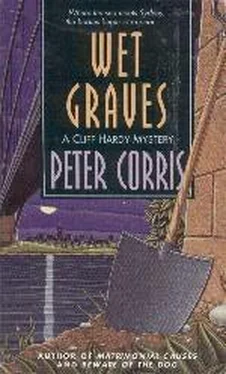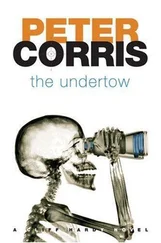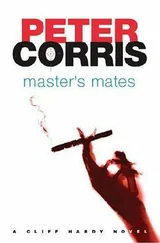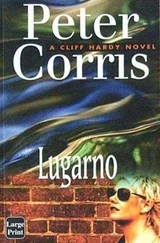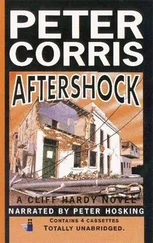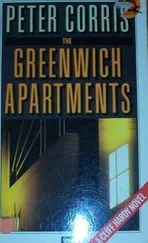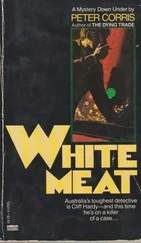Peter Corris - Wet Graves
Здесь есть возможность читать онлайн «Peter Corris - Wet Graves» весь текст электронной книги совершенно бесплатно (целиком полную версию без сокращений). В некоторых случаях можно слушать аудио, скачать через торрент в формате fb2 и присутствует краткое содержание. Жанр: Криминальный детектив, на английском языке. Описание произведения, (предисловие) а так же отзывы посетителей доступны на портале библиотеки ЛибКат.
- Название:Wet Graves
- Автор:
- Жанр:
- Год:неизвестен
- ISBN:нет данных
- Рейтинг книги:5 / 5. Голосов: 1
-
Избранное:Добавить в избранное
- Отзывы:
-
Ваша оценка:
- 100
- 1
- 2
- 3
- 4
- 5
Wet Graves: краткое содержание, описание и аннотация
Предлагаем к чтению аннотацию, описание, краткое содержание или предисловие (зависит от того, что написал сам автор книги «Wet Graves»). Если вы не нашли необходимую информацию о книге — напишите в комментариях, мы постараемся отыскать её.
Wet Graves — читать онлайн бесплатно полную книгу (весь текст) целиком
Ниже представлен текст книги, разбитый по страницам. Система сохранения места последней прочитанной страницы, позволяет с удобством читать онлайн бесплатно книгу «Wet Graves», без необходимости каждый раз заново искать на чём Вы остановились. Поставьте закладку, и сможете в любой момент перейти на страницу, на которой закончили чтение.
Интервал:
Закладка:
I was getting more edgy by the minute. Having your licence lifted is no picnic. The procedures were swift, bordering on brutal. The wording of the Act had stuck in my mind. If you were disqualified at the court of petty sessions you could appeal, but, “Every such appeal shall be in the nature of a re-hearing and the decision of the district court thereon shall be final and without appeal”. Not even Cy Sackville could draw that out very far. There probably were procedures for reinstatement, but they were bound to be long and expensive.
In short, this was real trouble, and I was on the point of getting up and phoning Sackville when my name was called. I almost didn’t answer. You don’t have time to investigate a bridge jumper, I thought. Your survival comes first. But I told myself the Lenko business was all a mistake anyway. Frank’ll probably have it sorted out by six. Who could resist a man from such an office wearing such a suit? I went to the desk and collected a large manila envelope from the female constable whose blonde hair flowed out becomingly from under her hat. She advised me to have a nice day.
“You too,” I said. My positive attitude was working-I was being nicer to people. But just to show I wasn’t going soft, I got moving before an escort could be appointed and made a judicious selection of pamphlets in the lobby- they’d add a nice touch to my waiting room if I ever got one.
It was close to three o’clock and I hadn’t had any lunch. Lately I’d been trying to make lunch an exception rather than a rule. Another rule was no drinking before six. Well, as the sportsmen say, you win some and you lose some. I walked up Riley Street and, instead of dodging through the traffic, I used the crossing to get over to the Brighton Hotel-all that community policing soft sell was having an effect. I bought a seven-ounce glass of red wine at the bar and obeyed the notice there by “stepping back once served”. Besides stepping back helped me to ignore the big, fat, plastic-wrapped salad sandwiches that sat beckoningly on the bar.
The pub was quiet; cops drink there and journalists and punters and second-hand dealers, but everyone over twenty is drinking less these days, and the Brighton doesn’t have slot machines and keeps the television turned down. My kind of place. I got a stool and a bit of shelf by the window where there was enough light to read by and ripped open the envelope. Inside was the sort of stuff Louise Madden would probably have been able to get under the freedom of information legislation, if she’d been prepared to wait until she turned forty.
The photostat of the form Ms Madden had filled in when making her report didn’t tell me anything new. The notes of several police officers who’d made enquiries had been entered on a computer by a poor speller with an imperfect grasp of the computer’s working. Added to that, the dot matrix printer which had spewed out the papers had had a faded ribbon. It all made for difficult and uninspiring reading. Madden’s colleagues at the school had nothing useful to say; likewise his neighbours, doctor and bank manager. The man had disappeared. If he’d been beamed up into a spaceship, the aliens were looking at a fifty-six-year-old male Caucasian homo sapiens, 180 centimetres tall, weighing 70 kilos, with salt-and-pepper hair, blue eyes behind spectacles, and wearing a red tracksuit with white Nike running shoes. He spoke French and German pretty well, was widely read in history, anthropology and golf. A valuable catch.
I reproached myself for taking things too lightly. Maybe it was the rough red on an empty stomach, but it was more likely to be the effect of the face in the grey, grainy photostat copy of the photograph Louise Madden had supplied. A kind, gentle man, she’d said. He looked it, as well as humorous, slightly mocking and good-natured. More often than not, the picture you get of the subject in a missing persons case is of a sullen-looking teenager or an adult with a distracted, self-absorbed look that indicates something deeply wrong and makes disappearance seem almost the right answer. Not so with Brian Madden. He looked like a nice man to know, fun to be with, and I wanted to find him.
I riffled through the notes and located a brief record of interview with one Peter Thornybush, who was a member of the foursome Madden used to play with at Chatswood. The others were Clive Wells and Carlo Calvino, schoolteacher, accountant and lawyer respectively. Thornybush couldn’t account for Madden’s disappearance and ventured the opinion that Wells and Calvino were similarly ignorant. The police hadn’t interviewed the other two, nor was there any trace of an interview with a woman connected with the golf course. House calls, possible leads-the weft and warp of the private detective’s business. Another thread to pull was the taxi driver who’d seen a man answering Madden’s description approaching the harbour bridge.
I finished the glass of wine, put the papers back in the envelope and stuffed the police pamphlets in with them. I had two choices. To sit there drinking and worrying about the threat to my livelihood, or get out there and do some work. It was four o’clock and there was a good chance that someone I knew would wander in any minute and affect my decision. I got off the stool and left the pub, striking a blow for self-direction. I even knew where I was going.
3
Walking across the harbour bridge nowadays must be about as risky as street-marching in Beijing. The approaches- narrow paths, slender traffic islands, high-speed zones-were not pedestrian-friendly. Still, there were people, dwarfed by the huge grey metal superstructure and the big sandstone towers, walking across on both sides of the bridge. I drove. Trains rumbled past at twice the speed of the road traffic; only the motorcyclists, weaving between the cars, gave them any competition. I saw a jogger stop, pull off his Walkman headphones and tap the mechanism. All that metal must play hell with the radio reception.
I drove across from the south side, necessarily slowly on account of the evening rush, turned in North Sydney and crawled back. I hadn’t asked which side of the road the person who might have been Brian Madden had been walking, but it didn’t matter much. The footpath on the west side was crammed between the train tracks and a two-and-a-half-metre-high fence. Same sort of fence on the east- solid metal to waist height, then cyclone wire stretched between uprights that curved over away from the gap for the last ten centimetres or so. Three strands of barbed wire on top. A reasonably active person could climb it and a strong man could get a 70-kilogram weight over it, but there the possibilities ended. Anyone going over that fence either wanted to or went because someone else wanted them to.
The sun was going down as I stop-started along in the lane for drivers who didn’t have the right money to pay the toll. The sky was clear and the water turned red-gold. The ferries and sailing ships seemed to be skating across a sheet of beaten bronze. I was buying fifteen minutes of a hundred-million-dollar view for a dollar fifty-a bargain. I found it strangely disconcerting to think of the work going on to tunnel under the harbour. It seemed wrong somehow, a violation.
The city skyline was impressive, irregular and cranky-looking, the way a skyline should be. A good many of the tall buildings were owned by insurance companies and housed insurance officers. They were the sorts of places I might have ended up in if I’d stayed in the insurance game. Even being stuck in the harbour bridge traffic was better than that. I turned on the radio to listen to the Law Report and got quite involved in a discussion on the niceties of defamation, remembering something about it from long ago. Before I was an insurance investigator I had been a soldier and before that a law student. Life’s twists and turns. I paid my toll and threaded my way back through the city streets to Darlinghurst. Lawyer A said that the defamation laws were fine as they were; lawyer B said they should be changed to enhance the public’s right to know; lawyer C said they should be tightened to protect privacy. They were very polite to each other, which seemed to disappoint the programme’s presenter.
Читать дальшеИнтервал:
Закладка:
Похожие книги на «Wet Graves»
Представляем Вашему вниманию похожие книги на «Wet Graves» списком для выбора. Мы отобрали схожую по названию и смыслу литературу в надежде предоставить читателям больше вариантов отыскать новые, интересные, ещё непрочитанные произведения.
Обсуждение, отзывы о книге «Wet Graves» и просто собственные мнения читателей. Оставьте ваши комментарии, напишите, что Вы думаете о произведении, его смысле или главных героях. Укажите что конкретно понравилось, а что нет, и почему Вы так считаете.
